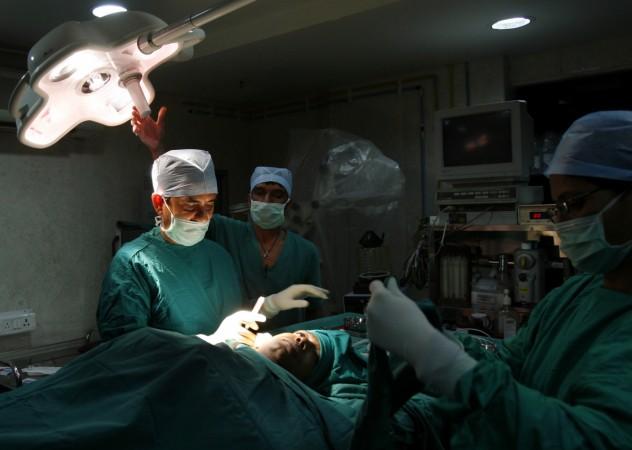
A group of doctors conducted what they called "the world's first" ayurvedic surgery upon an 83-year-old-man, Ojaswi Sharma, at a hospital in Meerut, Uttar Pradesh. The surgery involved removing the 240-gram prostate from the body, without the use of antibiotics.
Doctors used ayurvedic herbs, such as Amla (Indian gooseberry), turmeric, shigru (drumstick) and guggul (gum resin), instead of antibiotics during the surgery. The four-hours operation conducted on March 1 at Meerut's Anand Hospital involved the use of anaesthesia but no antibiotics before, during or post-operation recovery , the Times of India (TOI) reported. Currently, all standard operating procedures (SOP) involve the use of antibiotics to reduce the incidence of surgical site infection.
After the operation, Sharma was kept under observation for a month and is said to have fully recovered now. He was allergic to allopathic medicines due to which the doctors considered the use of ayurvedic herbs for the surgery.
A team of doctors led by urologist Subash Yadav consulted the country's top ayurvedic experts who stressed upon the possibility of conducting surgeries without the use of antibiotics, and cited the ayurvedic medicines available, which can replace allopathic drugs in surgery.
"Special medicines comprising extracts of giloy, shigru, amla, turmeric and guggul were used in calculated proportions to be administered to Sharma. Shigru is for mild infections and is also a natural painkiller. Amla increases immunity while giloy is helpful in detoxifying liver. The medicines were started 10 days before the operation," Hemant Khushawa, retired professor and head, National Institute of Ayurveda, Jaipur, who was one the experts consulted, was quoted by the daily as saying.
The procedure has taken the medical fraternity by surprise, especially at a time when concern about ineffectiveness of antibiotics has grown due to antimicrobial resistance.
"The development is indeed a rare feat achieved by the doctors. Surgery is highly dependent on allopathy as of now. Conducting surgery with ayuvedic support is the beginning of a new era," Manoj Kumar, director of orthopaedics department at Delhi's Maulana Azad Medical College, was quoted as saying by TOI.
He, however, said this is just one case and more research needs to be done for making the use of ayurvedic drugs a part of the SOP. "It is high time a well-equipped research body was established in the country to conduct research and trials, particularly at a time when the human body is increasingly becoming antibiotic resistant," he added.
The World Health Organization (WHO) recently held a meeting of 12 countries in Tokyo to discuss the ways by which the ineffectiveness of the antibiotics due to its excessive use (AMR) can be tackled. India and Japan also signed a letter of intent for better surveillance and research on AMR.

















